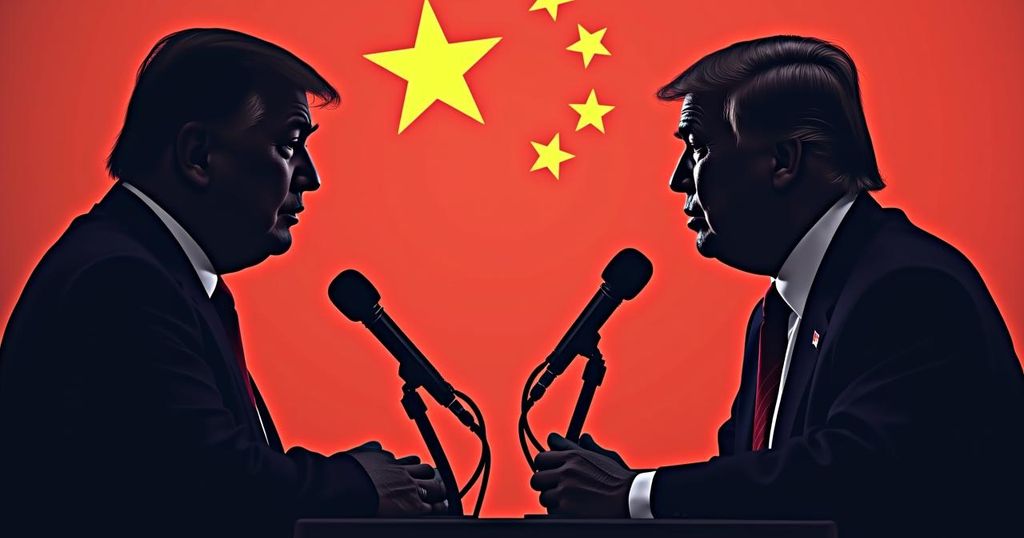Vance-Walz Clash Highlights Tensions Over China Ahead of U.S. Elections
The debate between Republican Senator J.D. Vance and Minnesota Governor Tim Walz, hosted by CBS News, highlighted domestic issues while also addressing foreign policy, particularly China. Poll results indicated Vance slightly edged out Walz with 42 percent of responses declaring him the winner. Walz emphasized his experiences in China, suggesting they could have informed Trump’s foreign policy decisions, thereby spotlighting the nexus between international relations and electoral strategies.
In the recent head-to-head debate between Republican U.S. Senator J.D. Vance and Minnesota Governor Tim Walz, foreign policy topics took a backseat to domestic issues, although they still emerged during the discussion. The debate, hosted by CBS News in New York, has drawn attention as it highlighted Walz’s past experiences in China, which he emphasized during his commentary on Donald Trump’s approach to foreign relations. A CBS News poll conducted after the event revealed that 42 percent of participants believed Senator Vance had won the debate, compared to 41 percent for Governor Walz, with the remainder indicating a tie. Governor Walz, who has personal ties to China and has led educational trips for students to the nation, asserted that his time there equipped him with a nuanced understanding of global relations. He stated, “I would make the case that Donald Trump should have come on one of those trips with us. I guarantee you he wouldn’t be praising Xi Jinping about Covid, and I guarantee you he wouldn’t start a trade war that he ends up losing.” Walz’s comments and connections to China have come under scrutiny, particularly in light of his association with Vice President Kamala Harris. Throughout the debate, while the candidates also touched upon pressing domestic issues such as gun control, immigration, and economic matters, the remarks regarding China have underscored the transformative influence of international relations in the current electoral climate.
The ongoing political discourse in the United States increasingly reflects the impact of foreign relations on domestic elections. As political candidates like Governor Tim Walz and Senator J.D. Vance navigate their campaign strategies, connections to international issues are becoming paramount in shaping voter perceptions. With significant focus on China, especially amid contemporary economic and geopolitical tensions, candidates’ past experiences and statements regarding engagement with such nations are scrutinized, especially during pivotal debates leading up to elections. This particular debate was a crucial moment for both candidates to clarify their positions and appeal to voters amidst a backdrop of pressing domestic concerns.
The recent debate between Senator Vance and Governor Walz not only provided a forum for domestic issues to be discussed but also underscored the relevance of foreign policy in shaping electoral outcomes. With a narrow polling margin favoring Vance, the importance of how candidates communicate their experiences and perspectives on international relations, particularly regarding China, remains significant. As the election nears, both candidates will likely continue to leverage these discussions to influence the electorate’s view.
Original Source: www.scmp.com




Post Comment